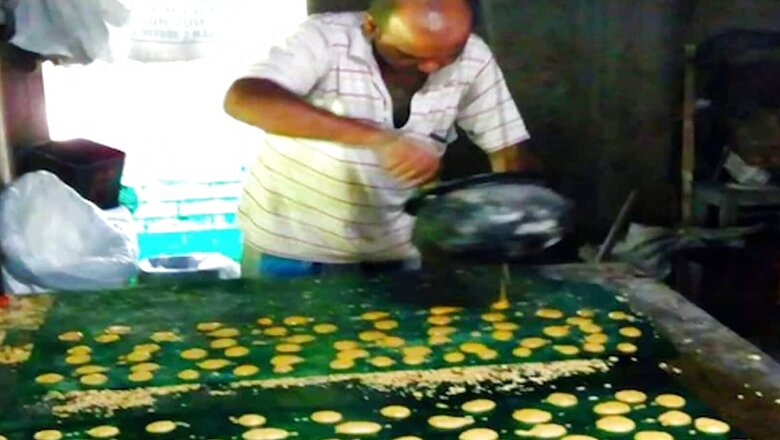
views
The ‘Batasha’ industry in West Bengal’s South 24 Parganas is on the verge of extinction as the present generation is no longer interested in the business. Generating profit from this business requires a lot of effort and the youth doesn’t want to waste its energy here, the elders of the area say. Batasha is commonly offered as a prasad in temples, mosques, and gurdwaras. Besides, it’s also prepared on festive occasions.
Subhash Das and his family have been making batasha for 19 years in their house at the South 24 Parganas. He explained the process of making bathasha and the hard work that goes into making it profitable.
“People have to sit next to the fire to melt the sugar. Boiling water from a hot pan is poured into a big utensil. After many hours, melt sugar settles down and molasses is added to it. You have to work for eight to ten hours with your neck and mouth bent to make batasha. The present generation is no longer interested in learning all these things. After a while, the making of batasha will become endangered art,” he said.
Explaining the process, he said batasha is made with the right combination of water, molasses, and sugar. In a proof-sized aluminium pot, a mixture of sugar and water has to be boiled on medium heat.
“When the water evaporates, the pot filled with thick juice is removed from the heat. Small drops of juice are poured into a utensil. The juicy drops cool down in contact with the air and we get batasha. Red, green, and yellow lollipops are also made by mixing different chemical colours lately,” he added.
Subhash says that the employees have left his shop because of the efoorst it involves and now he takes his daughter and wife’s health. Due to the shortage of skilled workers and the new generation turning away from this work, the industry will collapse soon if not immediately, he said.
He sells one kg of batasha at a wholesale price of Rs 52. By working seven to eight hours a day, an employee can produce somewhere between 100 and 120 kg of batasha and earn up to Rs 2000 profit in a day, he said.
Other sweet shop owners also complained that the government is not helping them sustain their business. They demanded the government provide subsidies on sugar purchased for making batasha.
Read all the Latest News, Breaking News and Assembly Elections Live Updates here.


















Comments
0 comment